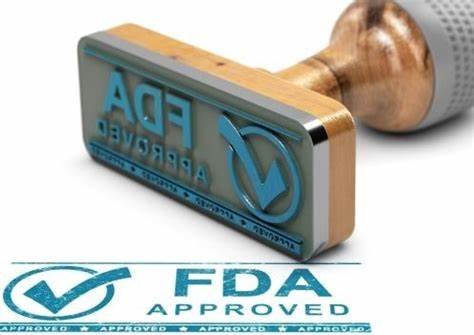FDA Approves Bkemv as First Interchangeable Biosimilar to Soliris
29 May 2024 | Wednesday | News

Image Source : Public Domain
U.S. Food and Drug Administration approved Bkemv (eculizumab-aeeb) as the first interchangeable biosimilar to Soliris (eculizumab) to treat certain rare diseases. Bkemv is approved for the following treatment indications, which are also currently approved for Soliris:
- the treatment of patients with paroxysmal nocturnal hemoglobinuria (PNH) to reduce hemolysis; and
- the treatment of patients with atypical hemolytic uremic syndrome (aHUS) to inhibit complement-mediated thrombotic microangiopathy.
"Many rare conditions are life-threatening, and many do not have treatments," said Sarah Yim, director of the Office of Therapeutic Biologics and Biosimilars in the FDA's Center for Drug Evaluation and Research. "The FDA is committed to help facilitate the development of safe and effective interchangeable biosimilar treatments that can expand access for individuals with rare diseases whose current treatment options are limited."
A disease is considered rare if it affects fewer than 200,000 people in the U.S. The conditions PNH and aHUS are rare diseases characterized by the breakdown of red blood cells. PNH results in anemia (low red blood cells), thrombosis (blood clots), pancytopenia (low counts of red blood cells, white blood cells, and platelets) and dark urine, while aHUS results in anemia, thrombocytopenia (low platelets) and kidney failure.
Bkemv is a monoclonal antibody that binds to the complement C5 protein and inhibits activation of the complement system, a part of the body's immune system. This binding prevents the breakdown of red blood cells in the bloodstream (intravascular hemolysis) in patients with PNH and aHUS.
Bkemv, like Soliris, has a Boxed Warning that states that eculizumab products increase the risk of serious and life-threatening meningococcal infections caused by Neisseria meningitidis, the bacteria that causes meningitis and other potentially severe infections. Patients should have completed meningococcal vaccination before starting Bkemv or Soliris, be monitored for early signs and symptoms of meningococcal infections and undergo further evaluation immediately if signs of infection develop.
As an interchangeable biosimilar, Bkemv is highly similar with no clinically meaningful differences to Soliris. Bkemv has the same safety warnings and is expected to have the same adverse reactions as Soliris. The most frequently reported adverse reactions in the PNH randomized trial for Soliris (≥10% overall and greater than placebo) are headache, nasopharyngitis (common cold), back pain and nausea. The most frequently reported adverse reactions in aHUS single arm prospective trials for Soliris (≥20%) are headache, diarrhea, hypertension, upper respiratory infection, abdominal pain, vomiting, nasopharyngitis, anemia, cough, swelling of lower legs or hands, nausea, urinary tract infections and fever.
Bkemv is available only through a restricted program called the Bkemv Risk Evaluation and Mitigation Strategy (REMS). A REMS is a drug safety program that the FDA can require for certain medications with serious safety concerns to help ensure the benefits of the medication outweigh its risks.
Bkemv is the 53rd approved biosimilar in the U.S. The FDA has approved 13 of these as interchangeable biosimilars.
An interchangeable biosimilar is a biosimilar that has been shown to meet other requirements under the law and may be substituted for the reference product without consulting the prescriber. The substitution may occur at the pharmacy, subject to state pharmacy laws which vary by state, a practice commonly called "pharmacy-level substitution" — similar to generic drug substitution for brand name drugs. All biological products are approved only after meeting the FDA's rigorous approval standards. This means health care providers and patients can expect the same safety and effectiveness from both a biosimilar and an interchangeable biosimilar, just as they would for a reference product.
The approval of biosimilar and interchangeable biosimilar products furthers the FDA's longstanding commitment to support a competitive marketplace for biological products and increase patient access to more affordable treatment options.
The FDA granted the approval of Bkemv to Amgen Inc.
Most Read
- How Does GLP-1 Work?
- Innovations In Magnetic Resonance Imaging Introduced By United Imaging
- Management of Relapsed/Refractory Multiple Myeloma
- 2025 Drug Approvals, Decoded: What Every Biopharma Leader Needs to Know
- BioPharma Manufacturing Resilience: Lessons From Capacity Expansion and Supply Chain Resets from 2025
- APAC Biopharma Review 2025: Innovation, Investment, and Influence on the Global Stage
- Top 25 Biotech Innovations Redefining Health And Planet In 2025
- The New AI Gold Rush: Western Pharma’s Billion-Dollar Bet on Chinese Biotech
- Single-Use Systems Are Rewiring Biopharma Manufacturing
- The State of Biotech and Life Science Jobs in Asia Pacific – 2025
- Asia-Pacific Leads the Charge: Latest Global BioSupplier Technologies of 2025
- Invisible Threats, Visible Risks: How the Nitrosamine Crisis Reshaped Asia’s Pharmaceutical Quality Landscape
Bio Jobs
- Sanofi Turns The Page As Belén Garijo Steps In And Paul Hudson Steps Out
- Global Survey Reveals Nearly 40% of Employees Facing Fertility Challenges Consider Leaving Their Jobs
- BioMed X and AbbVie Begin Global Search for Bold Neuroscience Talent To Decode the Biology of Anhedonia
- Thermo Fisher Expands Bengaluru R&D Centre to Advance Antibody Innovation and Strengthen India’s Life Sciences Ecosystem
- Accord Plasma (Intas Group) Acquires Prothya Biosolutions to Expand Global Plasma Capabilities
- ACG Announces $200 Million Investment to Establish First U.S. Capsule Manufacturing Facility in Atlanta
- AstraZeneca Invests $4.5 Billion to Build Advanced Manufacturing Facility in Virginia, Expanding U.S. Medicine Production
News











